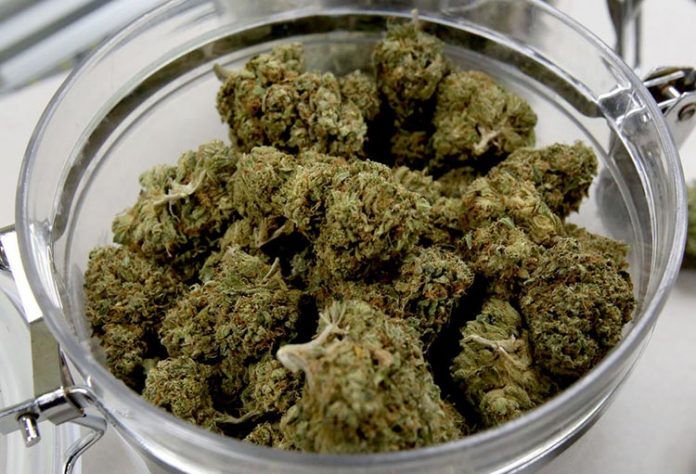The Arizona Supreme Court will decide whether lawmakers can make criminals of legal medical marijuana users who possess the drug on college and university campuses.
In a brief order, the justices agreed to hear arguments by Attorney General Mark Brnovich that the Court of Appeals erred last year when it voided a 2012 law which made possession of the drug on campuses a crime.
In that ruling, the appellate judges said that law is directly contrary to the 2010 initiative which legalized marijuana for medical use. More to the point, the judges said the Voter Protection Act, part of the Arizona Constitution, bars lawmakers from altering the voter-approved law.
But Brnovich points out the constitution does allow lawmakers to amend initiatives to “further the purpose” of what voters originally approved. And he contends the 2012 law fits that exception — an argument specifically rejected by the Court of Appeals.
What the justices ultimately decide most immediately affects Andre Maestas, arrested and convicted in trial court after police found about 0.4 grams of the drug — less than 0.02 ounces — in his dorm room at Arizona State University.
But it ultimately will govern whether future university and college students who are legally entitled to possess and use medical marijuana can face felony charges.
Central to the issue is that 2010 law. It allows those with certain medical conditions to obtain up to 2½ ounces of marijuana every two weeks.
That law does have places where medical marijuana users cannot have the drug, like public schools and prisons.
In 2012 lawmakers extended that to college and university campuses at the behest of those schools who argued they fear losing both direct federal aid and federally backed student loans if they allow faculty and students to possess the drug, which remains illegal under federal law.
Last year, however, the Court of Appeals voided the law. Judge Peter Swann, writing for the court, rejected the argument that the change “furthers the purpose” of what voters approved in 2010.
“To the contrary, it eliminates some of its protections,” he wrote.
Brnovich wants the Supreme Court to take a narrower approach to what the legislature can and cannot do to voter-approved laws.
He said it’s not like the 2010 law explicitly required that medical marijuana be allowed on college campuses. Brnovich contends the fact that the original law listed places where medical marijuana is not allowed effectively permits lawmakers to add to the list.
“Adding public colleges and universities to the list does not somehow deprive the voter initiative of force and meaning,” he argued.
While declaring it illegal to prosecute medical marijuana users for having the drug on campus, the appellate judges spelled out that does not prohibit state lawmakers or the universities themselves, as the owners of the buildings, from enacting regulations against marijuana possession on campus.
“To the extent a person violates such rules or prohibitions, the state can have the offending party removed or charged with trespassing,” Swann wrote. “The Arizona Medical Marijuana Act does not stop it from creating such policies.”
What lawmakers may not do, he said, is make criminals out of medical marijuana users just because they bring their drugs onto campuses.
The Supreme Court set Feb. 22 to hear arguments.














